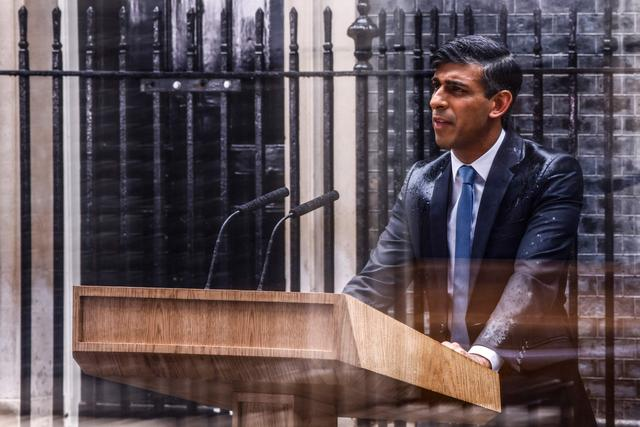
British Prime Minister Sunak said that if the Conservative Party wins the next election, it intends to introduce compulsory or alternative military service for young people. Writing in the Daily Mail, Sunak said: "We will change military service for today's Britain... All 18-year-olds will be subject to this new national service, regardless of their past and place of residence in the UK."
Sunak's compulsory military service is about a policy introduced by British Prime Minister Rishi Sunak to reinstate compulsory national service. The policy applies to all British citizens over the age of 18. Young people over the age of 18 can choose to join the army full-time for one year, or devote 25 days a year to community service, including participating in flood control, firefighting, medical emergency, mountain search and rescue projects. If the Conservatives win the general election on July 4, mandatory service could come into effect in September next year. Before that, there will be a royal commission to examine the details of the system. It is estimated that the scheme will consume about £2.5 billion a year in capital costs. Sunak also pledged to increase defense spending to 2.5 percent of gross domestic product by 2030. Some 85 countries have some form of mandatory service, including 12 countries in Europe. Britain had a brief period of compulsory military service from 1947 to 1960, requiring men between the ages of 17 and 21 to serve for at least 18 months.
Today, Sunak's reintroduction of the compulsory military service system has sparked widespread social discussion and controversy. On the one hand, supporters believe that it will provide young people with valuable experiences and opportunities; Critics, on the other hand, worry that it will increase the financial burden of the state and may infringe on individual rights. According to a Daily Mail poll, more than 68 percent of people think national service should be reinstated, but the latest YouGov data shows that only 10 percent of British 18-24 year olds support a one-year compulsory military service.
Sunak's compulsory military service system, if implemented, will have a series of effects on British society. In economic terms, it is estimated that the scheme will consume about £2.5 billion a year in capital costs. This will put a certain pressure on British finance, which requires the government to make adequate budget and fiscal planning. In terms of employment opportunities, while the program may provide young people with short-term military or community service positions, it may also lead to fewer employment opportunities in other fields, because some young people will be engaged in military service and will not be able to pursue other jobs; But in terms of its impact on people's social attitudes, the plan could change the way British society views military service, making it a more common and accepted social responsibility. This will help raise the national defense awareness and patriotism of the people. A sense of social cohesion and solidarity may be enhanced through compulsory national service. Young people will have the opportunity to serve alongside their peers from different backgrounds and regions, increasing mutual understanding and trust.
For individuals, in terms of education and career planning, young people need to take a year off from full-time military service, which may interrupt their studies and career planning. However, Mr Sunak said national service would provide "valuable work experience" and help young people acquire important skills and new experiences. The program limits young people's personal choice and freedom to a certain extent.
Therefore, the success of the compulsory military service system in Sunak depends on the joint support of the government, the military and all sectors of society, the policy is a bold attempt, and the government needs to fully evaluate the pros and cons of the plan and take effective measures to deal with the challenges and problems that may arise.

The global electric vehicle market in 2025 is experiencing intense turbulence. Tesla, once a disruptor that reshaped the industry landscape, is now mired in an unprecedented sales crisis.
The global electric vehicle market in 2025 is experiencing …
Recently, Chinese telecom companies Huawei and ZTE signed a…
Recently, according to Xinhua News Agency, Israel's air str…
A strongly worded report from the Equality Trust argues tha…
On November 27, 2025, Alibaba officially entered the global…
The focus of the global financial market in 2025 has always…